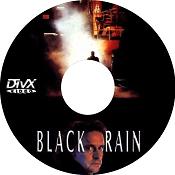Parable
"A comparison or analogy. The word is simply a transliteration of the Greek word: parabolé (literally: 'what is thrown beside' or 'juxtaposed'), a term used to designate the geometric application we call a 'parabola.'…. The basic parables are extended similes or metaphors."
— http://religion.rutgers.edu/nt/
primer/parable.html
"If one style of thought stands out as the most potent explanation of genius, it is the ability to make juxtapositions that elude mere mortals. Call it a facility with metaphor, the ability to connect the unconnected, to see relationships to which others are blind."
— Sharon Begley, "The Puzzle of Genius," Newsweek magazine, June 28, 1993, p. 50
"The poet sets one metaphor against another and hopes that the sparks set off by the juxtaposition will ignite something in the mind as well. Hopkins’ poem 'Pied Beauty' has to do with 'creation.' "
— Speaking in Parables, Ch. 2, by Sallie McFague
"The Act of Creation is, I believe, a more truly creative work than any of Koestler's novels…. According to him, the creative faculty in whatever form is owing to a circumstance which he calls 'bisociation.' And we recognize this intuitively whenever we laugh at a joke, are dazzled by a fine metaphor, are astonished and excited by a unification of styles, or 'see,' for the first time, the possibility of a significant theoretical breakthrough in a scientific inquiry. In short, one touch of genius—or bisociation—makes the whole world kin. Or so Koestler believes."
— Henry David Aiken, The Metaphysics of Arthur Koestler, New York Review of Books, Dec. 17, 1964
For further details, see
Speaking in Parables:
A Study in Metaphor and Theology
by Sallie McFague
Fortress Press, Philadelphia, 1975
Introduction
Chapter 1
Chapter 2
Chapter 3
Chapter 4
Chapter 5
Chapter 6
Chapter 7
"Perhaps every science must start with metaphor and end with algebra; and perhaps without metaphor there would never have been any algebra."
— attributed, in varying forms (1, 2, 3), to Max Black, Models and Metaphors, 1962
For metaphor and algebra combined, see

"Symmetry invariance in a diamond ring," A.M.S. abstract 79T-A37, Notices of the Amer. Math. Soc., February 1979, pages A-193, 194 — the original version of the 4×4 case of the diamond theorem.







































